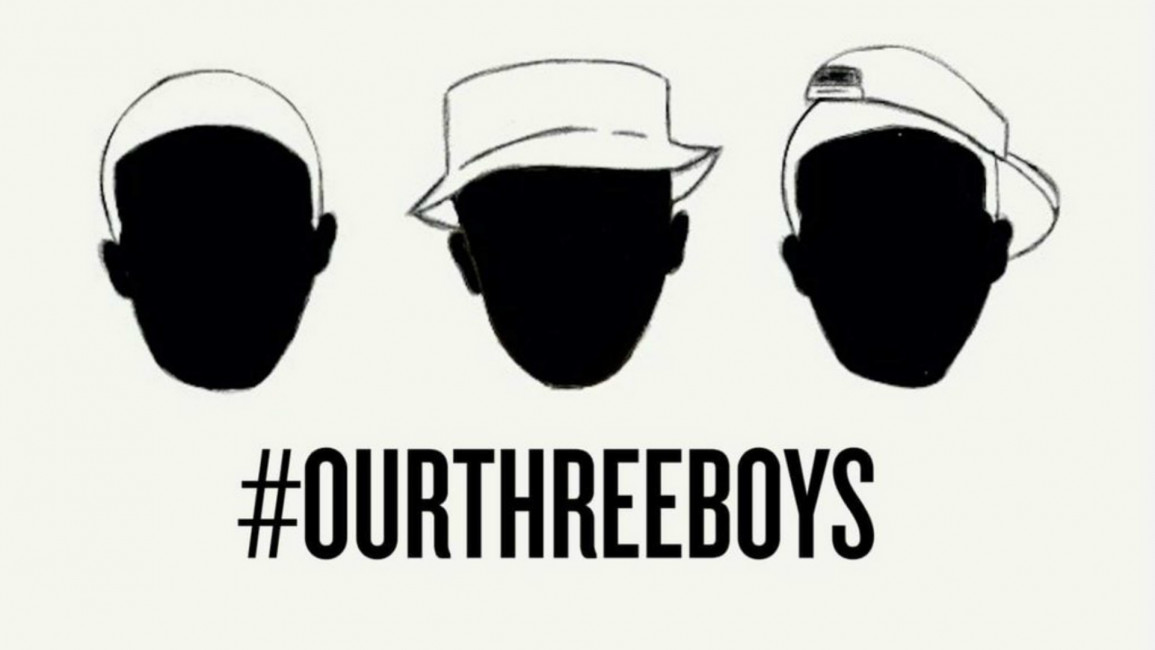
#OurThreeBoys murder triggers debate on racism and Islamophobia
The victims were Mohamedtaha Omar, 23, Adam Kamel Mekki, 20, and Muhannad Adam Tairab, 17.
"My brother was a good boy. He didn't do anything wrong. He never joined a gang, never did drugs or drunk alcohol," wrote Nawal Omar, sister of Mohamedtaha, on Facebook.
"He always wanted to go back to Sudan, but now he can't because some heartless people decided to end his life when it just started. They also took my little cousin, [who] was only seventeen and their beloved friend Adam's life."
Although the circumstances around their deaths have not been fully established, many in the community here and further afield believe the killing of the three yougn Sudanese-Americans was likely to be a hate crime given the rising Islamophobic and racist sentiment which appears prevalent in much of the United States.
— Linda Sarsour (@lsarsour) 28 February 2016
" style="color:#fff;" class="twitter-post-link" target="_blank">Twitter Post
|
— El Chapo (@LibanWardere) 1 March 2016
" style="color:#fff;" class="twitter-post-link" target="_blank">Twitter Post
|
Many compared the killings to the Chapel Hill murders, in which three young American Muslims - Deah Shaddy Barakat, Yusor Mohammad Abu-Salha and Razan Mohammad Abu-Salh - were killed in their home just over a year ago.
The Chapel Hill murders sparked global outrage and widespread condemnation, especially from the Muslim community. Countless social media users memorialised the murdered high-achieving students with the hashtag #OurThreeWinners.
Yet in the wake of the recent murders of the three American men of East African origin, many feel that the Muslim community, let alone the US, has neglected the deaths.
— Nad!aa (@Nadiaalie) 28 February 2016
" style="color:#fff;" class="twitter-post-link" target="_blank">Twitter Post
|
A petition by activist Tariq Toure demanding a full investigation into the deaths has so far garnered more than 10,000 signitures.
"As a writer, advocate for justice, and Black Muslim man from Baltimore, I have unfortunately become accustomed to a United States of America where violence, particularly against Black people, is the order of the day," reads the petition.
"Even so, it is extremely troubling when some lives are valued more than others. The muted attention given to this case and the lackluster response from officials in Indiana are a sad reflection of today's society."
Social media users have been using the hashtags #OurThreeBrothers and #OurThreeBoys to bring attention to the murders.
— rhoda (@rhose__) 1 March 2016
" style="color:#fff;" class="twitter-post-link" target="_blank">Twitter Post
|
Some feel the lack of attention was symptomatic of racism with the American-Muslim community, as well as across the wider US.
"We love to complain about injustices against Muslims, but our own mosques choose to echo so many oppressive views," wrote blogger Eman Edal.
"We want justice, but only for some of us. We talk about Islamophobia but never anti-Blackness."
Eman was not alone in her critique of the American-Muslim community's response:
"Muslims not wanting to address or amplify the deaths of #ourthreeboys until cleared as 'non-gang affiliated' need a reality and racism check," said Khaled Beydoun, a professor of law at Berkeley university.
"Don't perpetuate what mainstream media does with non-Black Muslims, presuming that the 'victims are terrorism-affiliated' until cleared… We need to galvanise, not divide."
Many others repeated similar sentiments on social media.
— Mrs. Køngar (@mrskongar) 1 March 2016
" style="color:#fff;" class="twitter-post-link" target="_blank">Twitter Post
|
— Mohamed 'Diini' (@M_Diini) 1 March 2016
" style="color:#fff;" class="twitter-post-link" target="_blank">Twitter Post
|
Following the widespread allegations that this was a hate crime, many referenced a report on Buzzfeed that quoted their friends on saying there were other factors that could have been a cause in their deaths.
— Sana Saeed (@SanaSaeed) 1 March 2016
" style="color:#fff;" class="twitter-post-link" target="_blank">Twitter Post
|
Others pointed out that, while two of the victims were Muslim, Adam was from a Christian background.
Yet many, including a relative of the victims, pointed out that even if the crime was not directly motivated by hate, their ethnic, religious and social backgrounds still playing a role in determining the reaction to their deaths.
"They were murdered execution-style in this country. We don't know why. There's no possible reason why. But even if they weren't killed because of their faith or skin or nationality, the reaction to their deaths is a direct result of these factors," wrote Afaq Ibrahim Imam Mahmoud, a cousin of the two boys.
"Do you know what it means to flee to 'safety' and have it swallow you whole?" she wrote, referring to their refugee backgrounds.
"They were good boys, but what the hell kind of people only mourn deaths if lives were lived according to their standard? What the hell kind of people only mourn people if they look and live and pray like them?"



